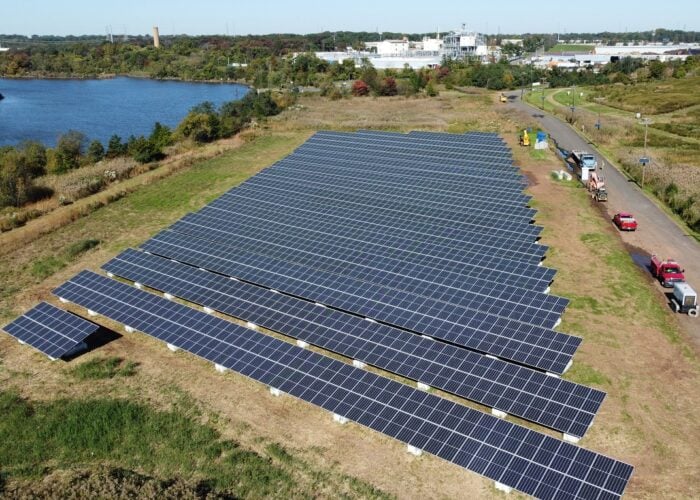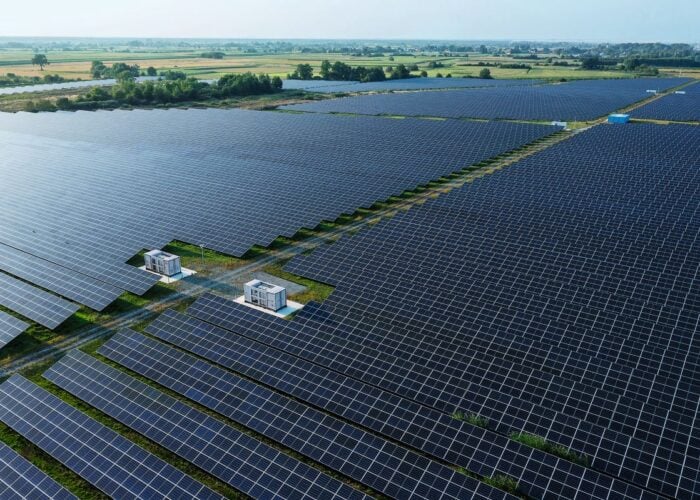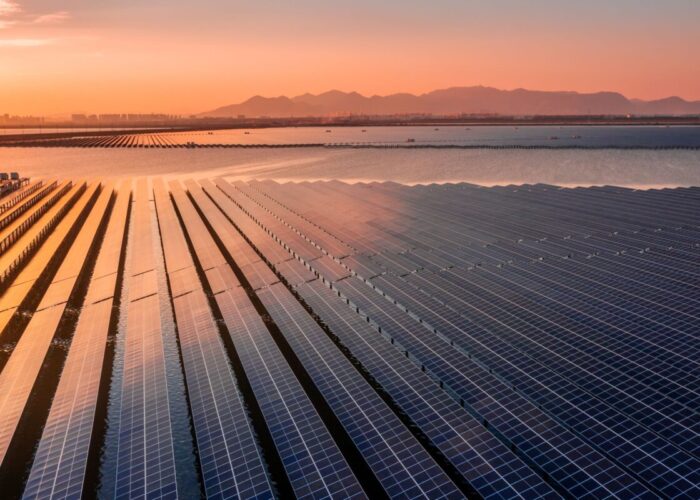
After the Department of Energy's (DOE) draft 2018 budget leaked revealing cuts to renewable spending, the industry is questioning the sincerity of energy secretary Rick Perry's grid review.
“The leaked budget request shows that Trump administration has already decided to try and take down renewables and the Perry grid study will likely just be a fig leaf that ignores research from the Energy Department’s own laboratories and facts on the ground from leading clean energy states like Perry’s home state of Texas,” Amit Ronen, director of the George Washington Solar Institute, told PV Tech.
Unlock unlimited access for 12 whole months of distinctive global analysis
Photovoltaics International is now included.
- Regular insight and analysis of the industry’s biggest developments
- In-depth interviews with the industry’s leading figures
- Unlimited digital access to the PV Tech Power journal catalogue
- Unlimited digital access to the Photovoltaics International journal catalogue
- Access to more than 1,000 technical papers
- Discounts on Solar Media’s portfolio of events, in-person and virtual
Or continue reading this article for free
In April, news broke of energy secretary Rick Perry launching a 60-day review of the grid to investigate how certain federal subsidies boost one form of energy at the expense of certain base load energies such as nuclear and coal. Upon the news, industry media immediately reported that Perry was targeting clean energy with his study. However, the nation’s largest solar trade group, the Solar Energy Industries Association (SEIA) came to Perry’s defence, and assured PV Tech that the study was not an attack, but regular housekeeping warranted in a new position.
However, the administration already submitting budget proposals before the conclusion of the study begs the question whether its conclusions may be foregone if the White House has already made up its mind about the fiscal importance of renewable energy.
“All signs indicate that secretary Perry’s grid review is an attempt to further myths about renewable energy that have long been pushed by historic generation sources and business models that are becoming increasing moribund and uncompetitive,” added Ronen.
Budget Leaks

The Trump administration wants to cut funding for the DOE's Office of Energy Efficiency and Renewable Energy (EERE) by 70% in its 2018 budget, according to a draft agency budget document obtained by Axios.
The draft figures propose that under the EERE’s current budget, spending for renewable energy will drop from US$451 million this year to just US$134 million in 2018. This would see the overall budget of the EERE drop from more than US$2 billion to US$636 million.
Back in March, the administration propsoed a ‘skinny budget’ for the remainder of the fiscal year that planned to cut the EERE’s budget by just 25%. This was firmly opposed by a coalition of Congress members, led by California’s Eric Swalwell.
Trump is set to send his full 2018 budget proposal to Congress next week, but it’s unclear if lawmakers would support deep cuts to clean energy programmes, as clean energy does often enjoy bipartisan support. However, whilst it may not be likely that Congress will support such deep cuts, the draft proposal does signify importantly that Trump is prepared to make good on his ‘threats’ to cut spending on ‘unnecessary’ measures and undo much of the climate action and renewable energy progress.
Perry’s ‘fig leaf’ grid review
If the budget is written before the review has ended, its conclusions may be a farce; indicating that the DOE does not really view renewable energy spending as a priority – regardless of its eventual outcome.
Just this week, several leading Senate Democrats wrote to Perry, with complaints of the DOE freezing funding for many energy initiatives already approved by Congress.
“This Study appears to be a thinly-disguised attempt to promote less economic electric generation technologies, such as coal and nuclear, at the expense of cost-competitive wind and solar power,” the letter reads.
“We have heard from small businesses, universities and research institutions…that the DOE has slowed down or frozen some of its essential research and development programmes,” it continues. “Each new president has the right to influence the direction of the executive branch, but the president cannot ignore statutory requirements or funding direction provided by appropriations legislation for fiscal years 2016 and 2017.”
The Trump Administration is expected to send its budget request for the fiscal year 2018 to Congress next week.







